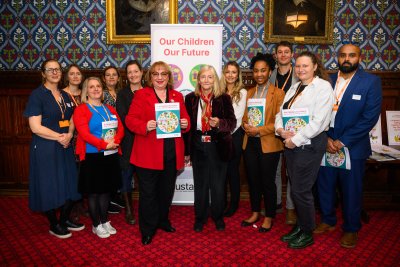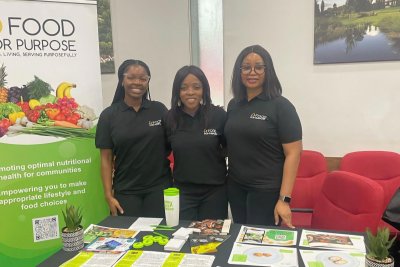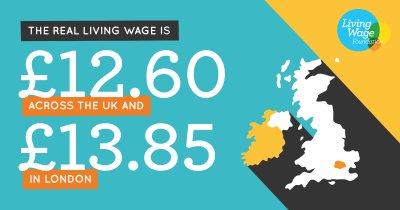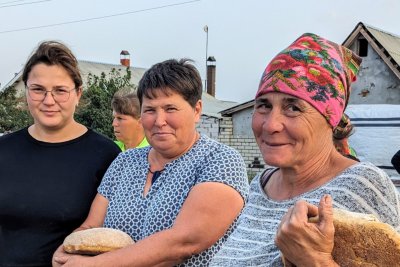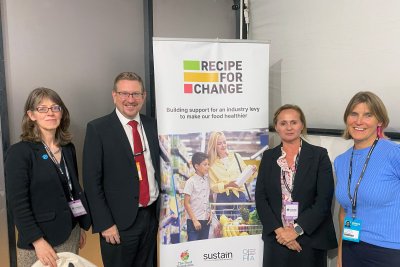 A dandelion and its seeds. Credit: Nita | Pexels
A dandelion and its seeds. Credit: Nita | Pexels
Now in its second year, The RACE Report collects comparable data on race and ethnicity among the staff teams in UK charities working on environmental, climate, nature or sustainability issues. This year, alongside reporting on our own internal data, we warmly encouraged Sustain alliance members to participate in the initiative so that we can collectively move towards a more diverse and equitable movement. The launch of The RACE Report 2023 also coincides with Race Equality Week, an opportunity to reflect on what we can all do to help support racial justice.
The environment sector continues to have one of the least ethnically diverse workforces – pipped only by agriculture and veterinary medicine. Of course, change takes time, which is why it’s so vital to embed racial justice throughout our work.
Working to influence a sustainable food system recognises the intersection of racial justice and food justice and that you cannot have one without the other. Follow the link to read more from Sustain’s Diversity Outreach Coordinator Sareta Puri.
“Every organisation working on environmental, health and social issues must prioritise diversity in recruitment. This results in more inclusive decision-making, better representation for the communities we work with, and fresh perspectives to shake us out of old ways of thinking. We must also be transparent about our progress (or lack of it) through collective action such as The RACE Report and Race Equality Week. These are vital to refresh our awareness, commitments, actions and innovation to fuel the momentum of change.”
Kath Dalmeny, Chief Executive of Sustain
For the first time, The RACE Report is publishing public transparency cards for participating organisations that includes demographic data and information on how each participating organisation is doing on a range of measures from strategy and governance, to policies and practical steps. You can see Sustain’s transparency report card on the RACE Report website.
As a guide Sustain typically employs around 30 people. This year, we prioritised recruitment for diversity in our action plan and set out clear policy commitments and tangible steps to achieve our aims. We undertook 10 external recruitment processes across the year, and we hosted one person as part of a paid internship opportunity.
There’s much more work to do, but we were pleased to see an increase in the number of Black people and people of colour (BPOC) staff members in the Sustain team from 1 (3.6%) in 2022 to 4 (13.3%) in 2023, plus three BPOC people employed by Sustain in other ways. There has been no change at the senior leadership level (a team of three people) with 100% White staff reported in both the 2022 and 2023 report. Over the next year, we will continue to apply and improve our approach to recruitment for diversity, and have commissioned an HR specialist to help us properly embed this approach with all those who work on recruitment at Sustain.
Whilst this information is not recorded in The RACE Report data, we also make special efforts to reach out to people from diverse backgrounds to take up paid opportunities, This included recruitment of a videographer to film a documentary interviewing Sustain trustees from diverse ethnic and cultural backgrounds sharing their routes into sustainable food and farming.
The majority of people employed by Sustain have permanent contracts, subject to funding. The three people who were employed on short-term and non-permanent contracts during 2023 were BPOC colleagues (this information was not collected in 2022). This included a new paid internship on our Bridging the Gap programme, as a work experience opportunity, created for younger people from diverse ethnic backgrounds under-represented in our sector. This year, we will fundraise to offer or support more such opportunities and develop and embed this approach.
Throughout the year, we rolled out our Ethnicity Confident Scheme (piloted in 2022 and inspired by positive action for recruitment pioneered by SOS-UK, who coordinate The RACE Report) – as well as the established Disability Confident Scheme. Any job applicants who meet all of a role’s essential criteria and who voluntarily let us know that they would like to be considered under either or both of these schemes have an enhanced chance of gaining a first-stage interview.
Over the coming year, we will continue to implement and promote positive action in recruitment for diversity, monitor what works, seek feedback from job applicants on our process, and deploy an HR specialist to help us learn and embed this into the way we work.
The RACE Report also looks at representation within Boards and Charity Trustee groups. In 2022 we had 19 Trustees (some in role-shares), and: 8 of 19 trustees (42%) that completed the survey reported as non-White ethnicities and in 2023, 6 out of 16 (37.5%). Over the past three years we have taken steps to diversify our Council of Trustees to welcome more younger and BPOC Trustees, either as experienced sector-leaders in their own right, or via a new role-share scheme to improve opportunities for younger people from diverse ethnic backgrounds and identities to gain experience in charity leadership. Over the past year, we celebrated the fact that two of the people who had previously held role-share positions have gone on to become full Sustain Trustees in their own right, and two more people were newly elected to role-share positions. This year, we will publish guidance on how our role-share scheme has worked, with recommendations from participants on how to make this scheme more flexible to enable younger people from diverse ethnic backgrounds to get the most from it in a range of ways.
Recruitment, however, is just one step and we are aware that recruiting for diversity must go hand in hand with an inclusive organisational culture that puts anti-oppression at the heart of its strategy and delivery, as well as warm and positive efforts to cultivate appreciation and belonging. Our next step internally is to thoroughly review our induction and probation processes to help new colleagues feel welcome and get off to a really good start.
We are also aware of the intersectionality of people’s identities and experiences. The RACE Report also asks detailed questions on gender or sexual identity. We enhanced these questions in our use of the survey template, as well as questions on disability and long-term health conditions. We want to be sure that we are aware people with diverse or intersectional experiences and identities gain opportunities and feel welcome.
Action to improve our own organisation is essential. However, as an alliance, Sustain also has opportunities and responsibilities to support change throughout the movement. Through our new diversity outreach work led by Sareta Puri, we are now working to inform and inspire learners and career movers from ethnically diverse backgrounds about roles within the sector, whilst also providing opportunities to champion and amplify Black people and people of colour in the movement. Therefore much of this work is about building understanding, capacity and commitment to these fundamental issues and to create space for learning, shifting (uncomfortably at times) and evolving as a movement. This takes time and there are no simple or quick wins. However, steps like The RACE Report and being involved in Race Equality Week enable us to be transparent, accountable and commit to always doing better.
Throughout the above, we mention some of the things we plan to do next, overseen by our Core Diversity Working Group, chaired by Sustain’s Chief Executive Kath Dalmeny, who has overall responsibility and accountability for ensuring that we make progress on our diversity, equity, inclusion and racial justice commitments.
We also commit to continued participation in The RACE Report, as well as taking action on a range of important themes, reported transparently.
Editorial note: Shortly after The RACE Report data cut-off point, Sustain held our annual elections to our Council of Trustees, now 16 people in total (elections took place in November 2023). The latest statement on Trustee diversity (signed off in January 2024) is this: “Based on characteristics self-declared by members of Sustain’s Council of Trustees, membership of Sustain’s Council of Trustees is 80 per cent female; just under half of Trustees are from Black, Asian and diverse ethnic backgrounds; and just under half of Trustees have self-declared personal attributes that are among ‘protected characteristics’ in terms of religious affiliation, long-term health condition or disability and sexual orientation or identity.”
Sustain: Sustain The alliance for better food and farming advocates food and agriculture policies and practices that enhance the health and welfare of people and animals, improve the working and living environment, enrich society and culture and promote equity.
Sustain
The Green House
244-254 Cambridge Heath Road
London E2 9DA
020 3559 6777
sustain@sustainweb.org
Sustain advocates food and agriculture policies and practices that enhance the health and welfare of people and animals, improve the working and living environment, promote equity and enrich society and culture.
© Sustain 2024
Registered charity (no. 1018643)
Data privacy & cookies
Icons by Icons8

